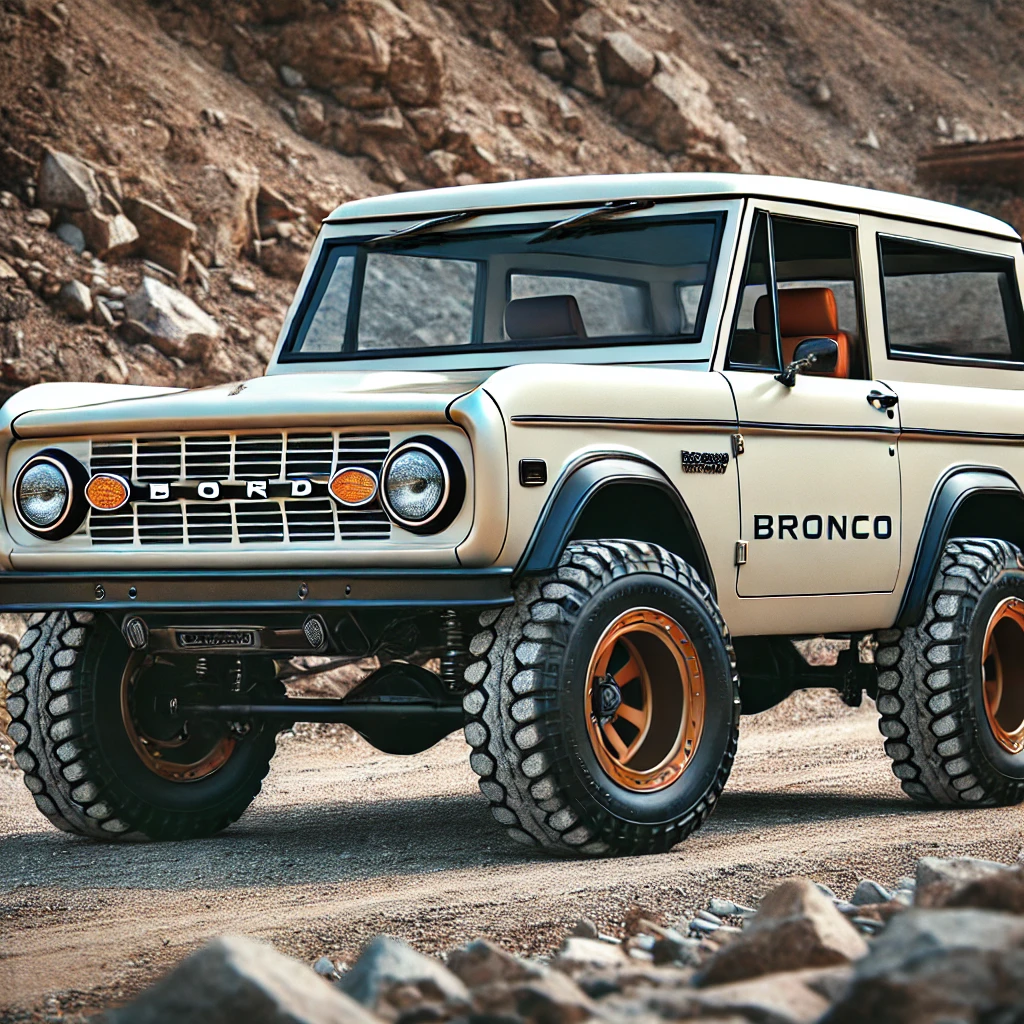
Ford Sues Restoration Company: In an intriguing turn of events, Ford Motor Company has recently filed a lawsuit against a restoration company for transforming its modern-day Broncos to resemble the vintage look of the iconic first-generation models. This legal battle raises questions about intellectual property, brand integrity, and the fine line between homage and infringement. Here’s a detailed breakdown of the lawsuit, the motives behind it, and the implications for both Ford and the broader auto restoration and modification community.
The Background of the Ford Bronco Legacy
The Ford Bronco is one of the most recognizable names in automotive history. Originally launched in 1966, the Bronco quickly gained a dedicated following for its rugged capability, distinctive style, and off-road prowess. After decades of anticipation, Ford revived the Bronco in 2020, incorporating modern design and technology while paying homage to its roots. The comeback of the Bronco stirred excitement, as fans of the classic models could now experience an updated version with the latest features.
The Restoration Trend and Why It’s Popular
Classic car enthusiasts often seek to bring the best of both worlds together—merging vintage style with modern performance and safety standards. Restoration companies have carved a niche for themselves by giving modern cars a retro touch, a trend that has surged in popularity. With a growing appreciation for classic aesthetics, some customers yearn for a vehicle that looks like a vintage model but performs like a contemporary car. Companies offering these “resto-mods” address that desire by modifying modern vehicles, transforming their design to resemble iconic older models while keeping the new car’s mechanical and safety features intact.
The Lawsuit: Ford’s Complaint Against the Restoration Company
Ford’s recent lawsuit centers on a specific restoration company that has been modifying new Broncos to look strikingly similar to the original first-generation models. The modifications reportedly include custom bodywork, badging, and other stylistic changes that give the new Bronco a retro appearance, mimicking the design of the 1960s Bronco.
Ford’s lawsuit argues that these changes infringe upon its trademark and intellectual property rights. According to Ford, the restoration company’s modifications could lead to consumer confusion, dilute the Ford Bronco brand, and ultimately harm Ford’s brand image. They also claim that the modified vehicles are misrepresenting Ford’s current Bronco lineup by implying that these vintage-inspired looks are officially endorsed or part of the product range offered by Ford itself.
Intellectual Property: Where’s the Line?
This legal issue highlights a gray area in intellectual property and brand rights in the automotive industry. Ford’s lawsuit is based on the principle that its brand, design, and trademark are intellectual property assets that must be protected. When a restoration company creates a car that resembles the classic Bronco, it could potentially mislead consumers into believing they are purchasing an official Ford product.
However, the restoration company might argue that their modifications are simply paying tribute to a classic design without violating Ford’s trademarks. Additionally, they could claim that consumers are well aware that these modifications are aftermarket and not affiliated with Ford itself.
Why Ford Is Concerned: Protecting Brand Integrity
For a global company like Ford, brand integrity is essential. The Bronco brand has a specific image that Ford has worked hard to cultivate, especially with the recent relaunch. Ford’s lawsuit implies that the company is keen on maintaining control over the Bronco’s legacy and preventing any misrepresentation of its new Bronco models.
Allowing a company to produce unauthorized vintage-inspired versions could weaken Ford’s control over the Bronco image and impact its revenue. If these modified Broncos are perceived as lower-quality due to non-standard modifications, it could harm the reputation Ford has carefully crafted for the new Bronco lineup.
Impact on the Restoration Community and Auto Enthusiasts
This case could set an important precedent for the car restoration industry. If Ford wins the lawsuit, other automotive manufacturers might follow suit, which could create challenges for companies that specialize in modifying and restoring modern cars to have retro looks. Such a ruling might restrict the ways in which companies can alter the appearance of cars, thereby limiting creativity in the resto-mod community.
Auto enthusiasts who appreciate these vintage-looking vehicles might feel disappointed if restrictions are imposed on modifications. Many enthusiasts cherish the freedom to personalize their vehicles, and the ability to blend classic designs with modern performance holds special appeal.
Potential Outcomes and Industry Implications
The outcome of this lawsuit will likely have a significant impact on the automotive restoration market and may influence how future modification companies approach their work. Here are some potential scenarios:
- Ford Wins the Case: If the court sides with Ford, the restoration company might be forced to cease producing retro-inspired Broncos. This outcome could deter other companies from similar modifications, leading to more limited options for consumers who want a modern vehicle with a classic look.
- Out-of-Court Settlement: Often, these types of cases are resolved with an agreement outside of court. Ford could reach an arrangement with the restoration company, potentially allowing them to continue modifying Broncos under specific conditions or for a licensing fee.
- The Restoration Company Wins: If the court sides with the restoration company, it would establish a precedent for other companies to modify vehicles without fear of infringement claims. This could be a win for the car modification community but might prompt companies like Ford to take additional steps in safeguarding their trademarks.
- The Rise of Licensed Modifications: As a possible outcome, Ford and other automotive companies might explore licensing partnerships that allow restoration companies to legally create these modifications, maintaining brand integrity while expanding options for enthusiasts.
Ford’s Future Strategy: Balancing Tradition and Innovation
Ford’s recent action shows that the company is serious about protecting the Bronco brand and its unique identity. Moving forward, Ford might consider developing official vintage-inspired variants for enthusiasts who desire a classic appearance. By offering these retro options directly through the brand, Ford could cater to the demand without risking brand dilution.
Conclusion
The Ford lawsuit against the restoration company is more than a simple legal dispute; it represents the ongoing clash between preserving brand identity and supporting creative expression within the automotive world. This case reflects broader questions surrounding intellectual property, brand loyalty, and how far companies should go in protecting their trademarks. Regardless of the outcome, the case will likely leave a lasting impression on both the automotive industry and the fan community, shaping the future of car modifications and the options available for auto enthusiasts
Our most recent post: https://primetorque.com/toyota-innova-hycross/





